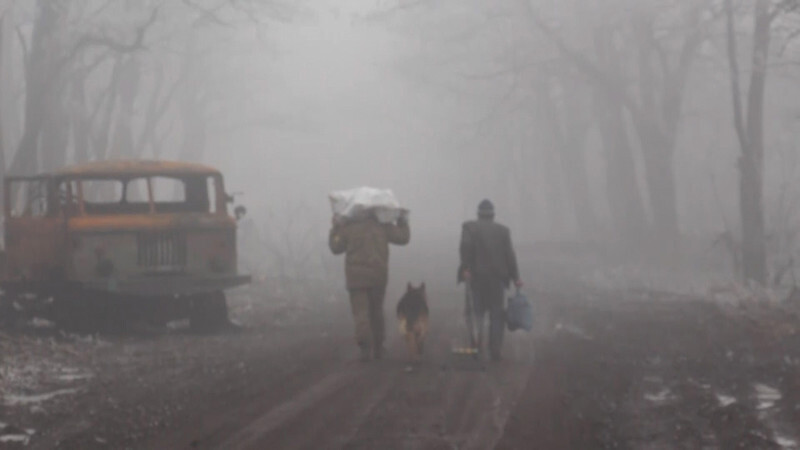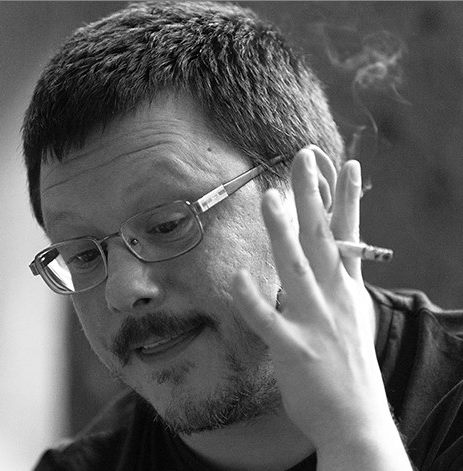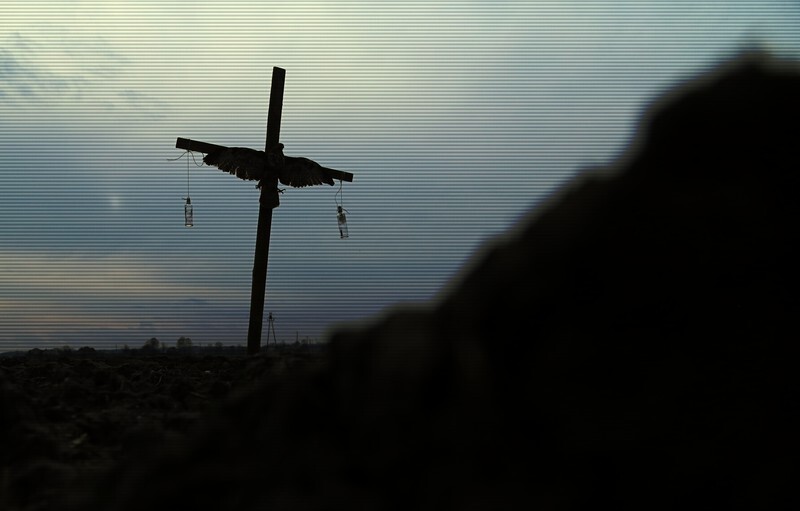This Is a War, Baby
What is happening in Donbass now? A quick Google search confirms the conflict is still going on.
Since it started in 2014 and was the highlight of all news outlets, it has been buried among other conflicts and crises happening around the world. But it is far from over. Given the speed of information the inevitable bias oriented towards counting clicks, we increasingly lose track of events. Or is it that the speed of information accelerates the succession of things?
It usually takes a long time to make a creative documentary. The industry reports an average of three years. Perhaps the most notable film about the conflict in Ukraine has been Vitaly Mansky's Close Relations, in which the filmmaker creates a distance through his specific approach. But the Ukrainian director Yuriy Pupyrin has already churned out his second, after last year's Chronicles of an Under-Declared War. How did he manage to make This Is a War, Baby, only one year after his debut?
Well, this is a different kind of creative documentary. It is urgent but not topical, at least not in the sense usually considered by documentary festivals and commissioning editors. It is fast-paced, but its narrative development is slow. This is not a simple conflict of two nations over one piece of land. It is a slice of life of one rag-tag unit of Ukrainian soldiers in the Donetsk region.
Pupyrin follows the soldiers, along with a Polish TV crew led by a sassy reporter, as they move along the front lines of the conflict. But no battle is ever seen in the footage. The best we get is the sound of bullets and grenades.
Instead, This Is a War, Baby is a 60-minute, fully hand-held camera documentary with very little polishing in either the shooting itself or post-production. The soldiers of the 93rd Brigade of the Ukrainian Armed Forces seem to be quite a jovial group of men called by nicknames such as Monk, German, Tatarin, Gypsy etc., They keep having trouble with their vehicles and weapons, always on the lookout for a spare magazine of ammunition, a canister of diesel, or a generator left over from separatists. They trudge through the muddy fields of Donbass spring with what seems like very little discipline, even less talk of politics, and a lot of joking and drinking. At times, the film feels more like the beginning of a low-budget, found-footage horror movie set in Eastern Europe. We are just waiting for the monster to pop out.
Of course the monster is already there. But it is not any of the soldiers or any of the conflicted forces. It is not Poroshenko, nor Putin. It is not the war itself. The monster is what the history and the current political and social era have aggregated into. It does not have a name yet. We cannot even grasp all of it, as if it were one of H.P. Lovecraft's cosmic horrors. But one of its many heads is beautifully uncovered by one of Pupyrin's editing decisions.
As the soldiers pass by a church and a large estate surrounding it, a narrative title informs us it is the residency of Ilaryon, the Metropolitan of Donetsk and Mariupol. Ilaryon is famous for owning a €150,000 wristwatch and a Cadillac. The soldiers have been allowed to "do some looting" in the high-ranking priest's house. The director himself observes that he has not seen a single house that had not yet been looted.
The next segment features members of the ultra-nationalist Right Sector, a paramilitary group that has been (kind of) assimilated into the Ukrainian Army, talk about the war for motherland. All volunteers, they consider themselves above regular people who left their homes to run from the war. This is their sacred duty. Their chaplain, who wears a liturgical vestment over the Sector's black uniform (was a black uniform ever a sign of good intentions in the history of the world?), explains how a volunteer is akin to Christ: he sacrifices himself for his people.
As the always-smiling Polish TV reporter leaves in a van belonging to OUN (the acronym does not stand for anything United Nations-related, but for the Organization of Ukrainian Nationalists), the soldiers finally finish the interment of a frozen separatist who they began to bury in the prologue. We are left to think through a film that resembles Catch 22 in its satire and Paths of Glory in its bitterness. And it is not even a religious war we are witnessing here.
|
|
Vladan PetkovicVladan Petkovic is a journalist, film critic, festival programmer, translator and educator. He is the correspondent for the territories of former Yugoslavia for Screen International and Cineuropa, and regularly writes news, reviews, interviews, and market analyses for various magazines and websites. He is a programmer for the Cinema City Film Festival in Novi Sad (Serbia), Skopje Film Festival (Macedonia), and Mostar Film Festival (Bosnia and Herzegovina), and contributes as guest programmer and advisor for numerous international film festivals around Europe. |




